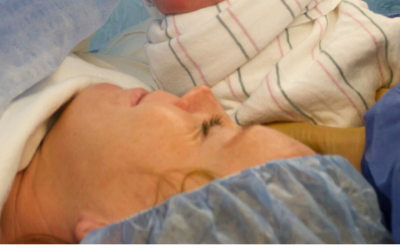Our News
1771344546.png)
New provider education resource enhances awareness about new diagnostic resources

Peter Joseph Pappas preeclampsia research grant recipients' study titles and reports.

Melbourne, FL – January 30, 2020 – The Preeclampsia Foundation announced the recipients of its 2020 Peter Joseph Pappas Research Grants, a funding program designed to accelerate preeclampsia research. Based on the recommendations of...

New Directors Bring Expertise in Maternal Health, Fundraising, Evidence Strategy, and Public Engagement

Recent findings in preeclampsia research have shown that preeclampsia likely has at least two variants – an early onset and a late onset variant. Early onset is typically defined as before 34 weeks gestation and late onset is after 34 weeks ges...

Preeclampsia is a pregnancy complication marked by new-onset high blood pressure and signs of stress on organs such as the kidneys, liver, and brain. While much attention is often given to preterm disease, about 75% of preeclampsia cases occur at ter...

Preeclampsia is a serious problem that can happen during pregnancy. It often affects the brain and can cause headaches, vision problems, strong reflexes, and seizures (called eclampsia). In this study, researchers explored whether certain substances...

Pregnancy offers a unique window into a woman’s future heart and cardiovascular health. Conditions such as hypertensive disorders of pregnancy (HDP) which include gestational hypertension, preeclampsia (with or without severe features), and ecl...

Heart disease, also called cardiovascular disease (CVD), is becoming more common in young women across the United States. Hypertensive disorders of pregnancy (HDP) is a group of conditions that include high blood pressure during pregnancy, such as pr...

The Preeclampsia Foundation announced the recipients of its 2026 Peter Joseph Pappas Research Grants. Based on the recommendations of its Scientific Advisory Council, they awarded two grants totaling $99,997 USD each to Dr. Aki Ushiki, PhD and Kathle...
1763040575.png)
The Preeclampsia Foundation, a US-based not-for-profit focused on improving outcomes from hypertensive disorders of pregnancy, has been announced as one of 80+ organizations that were awarded funding through Action for Women’s Health, a $250 mi...

Hypertensive disorders of pregnancy significantly increase your risk of developing long-term heart problems. A careful review of blood pressure elevations during and after pregnancy may assist in identifying patients at risk of heart disease. ...





